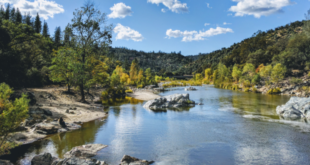Three researchers have been honored with Climate Science Service Awards by the California Department of Water Resources (DWR) at a recent San Diego workshop sponsored by DWR and the Scripps Institute of Oceanography. The awards seek to recognize the ongoing assistance provided by researchers who have worked closely with DWR on climate science projects. The awardees include Jason M. Cordeira, PhD, Plymouth State University; David Meko, PhD, University of Arizona; and, Duane Waliser, PhD, Jet Propulsion Laboratory (JPL), National Aeronautics and Space Administration.
Dr. Cordeira has developed an analytical tool for characterizing the forecasted probability of atmospheric river storms making landfall on the West Coast. Atmospheric river storms were a main source of California’s extreme precipitation during Water Year (WY) 2016-17 and were a contributing factor to the Oroville Dam disaster In Northern California. Dr. Cordeira is an Assistant Professor of Meteorology in the Department of Atmospheric Science and Chemistry with an Affiliate Faculty position within the Center for the Environment at Plymouth State University. His research areas include large-scale atmospheric circulations, atmospheric rivers, extreme precipitation, numerical weather prediction, and weather forecasting. He received his PhD in Atmospheric Science from the University of Albany in 2011.
Dr. Meko has reconstructed past droughts in the paleoclimate record using tree ring data to analyze the duration and severity of big droughts prior to California’s historical record. Dr. Meko is a Research Professor in the Laboratory of Tree-Ring Research at the University of Arizona (UoA). His research focuses on improving the understanding of temporal and spatial variability of climate on time scales of years to centuries, and on applying knowledge of long-term climate variability to management of water and other natural resources. He is currently involved in several interdisciplinary projects including reconstructing streamflow and drought frequency from tree rings, testing the statistical evidence for a link between solar/lunar cycles and drought as reflected in tree rings, and the effect of climatic variability on water supply, particularly in the semi-arid southwestern United States. Dr. Meko earned his PhD in Hydrology from UoA in 1981.
As the Chief Scientist, Earth Science and Technology Directorate at JPL, Dr. Waliser focuses on research in climate dynamics and in global atmosphere-ocean modeling, prediction and predictability, with emphasis on the Tropics. He utilizes new and emerging satellite data sets to study weather and climate as well as advance our model simulation and forecast capabilities, particularly for long-range weather and short-term climate applications. Dr. Waliser is also an Adjunct Professor in the Atmospheric and Oceanic Sciences Department at UCLA. He earned his PhD in Physical Oceanography Scripps Institution of Oceanography, University of California, San Diego in 1992.
“DWR is pleased to acknowledge the innovative work of these scientists to improve long range forecasting to better manage droughts and floods,” said DWR Director Grant Davis. “We appreciate the partnerships with the research community as we jointly develop useful information that will help water agencies and others who need better forecasts.”
 California Water News Daily Your Source For Water News in California
California Water News Daily Your Source For Water News in California


